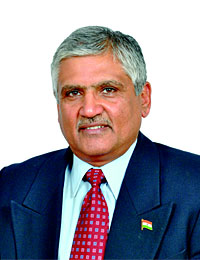Publishers's Note
 Lubricating Grease is considered a complex subject where in amongst the lubricant professionals. There is something mystic about it, which makes in complex. Signifcant R&D is being done on the subject to produce more resilient varieties of grease with wider applications. Testing of grease is also a complex subject particularly its integration with the maintenance programme.
Lubricating Grease is considered a complex subject where in amongst the lubricant professionals. There is something mystic about it, which makes in complex. Signifcant R&D is being done on the subject to produce more resilient varieties of grease with wider applications. Testing of grease is also a complex subject particularly its integration with the maintenance programme.
The release of the current issue (JanFeb 2017) coincides with the NLGI India conference (2-4th Feb) at Varanasi. We are specially carrying a brief write up on NLGI India chapter and its activities and also a few articles on the use and testing of grease, authored by experts in their feld.
I had an opportunity to present a paper on “Lubrication Enabled Reliability ( LER )” at a conference ( MAINTCON ) organised by GSMR ( Gulf Society of Maintenance & Reliability ) in Dec 2016. The four day conference had professionals from the feld of reliability from leading companies based the Middle East. During my interaction with the delegates and various authors, I was impressed with the state of art technology being used in this part of the world.
Lubrication-enabled reliability (LER) relates to all activities that improve reliability through tactical changes in the use and application of lubricants. LER offers specifc benefts and opportunities that don’t exist with alternative reliability strategies. Yet, most companies seem to be in denial when it comes to lubrication. They see themselves as being lubrication responsible — a misguided belief that they are already doing an adequate job with lubrication.
Fundamentally, LER has to be a business decision. Managers face wideranging opportunities when it comes to change and investment. Sound business judgment needs to be applied in deciding what to change next. Conversely, the cost of repairing or replacing a failed machine (plus the associated lost production) is not a business decision that is carefully weighed against all options. It is outside of the control and judgment of management. The decision is driven entirely by the machine and its failure. The wisest thing managers can do at that point is to invest in a skilfully performed root cause analysis (RCA) followed by the prescribed changes needed to prevent reoccurrence.
“Tips to help you achieve Lubrication Excellence”, which featured as a cover story in the previous edition, evoked an extremely positive response from our readers. We have been inundated with views from the readers on how they have made use of these tips to improve their lubrication practices. As always, we look forward to your valued feedback and comments on our content and presentation.
Warm regards,
Udey Dhir
